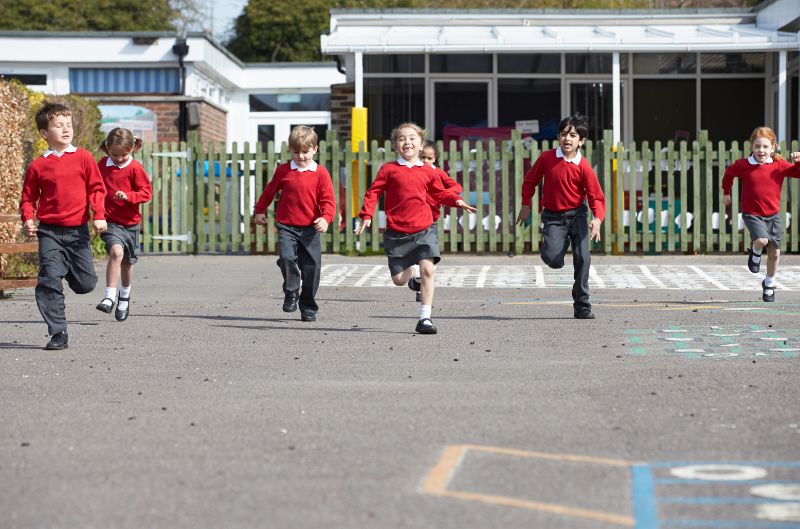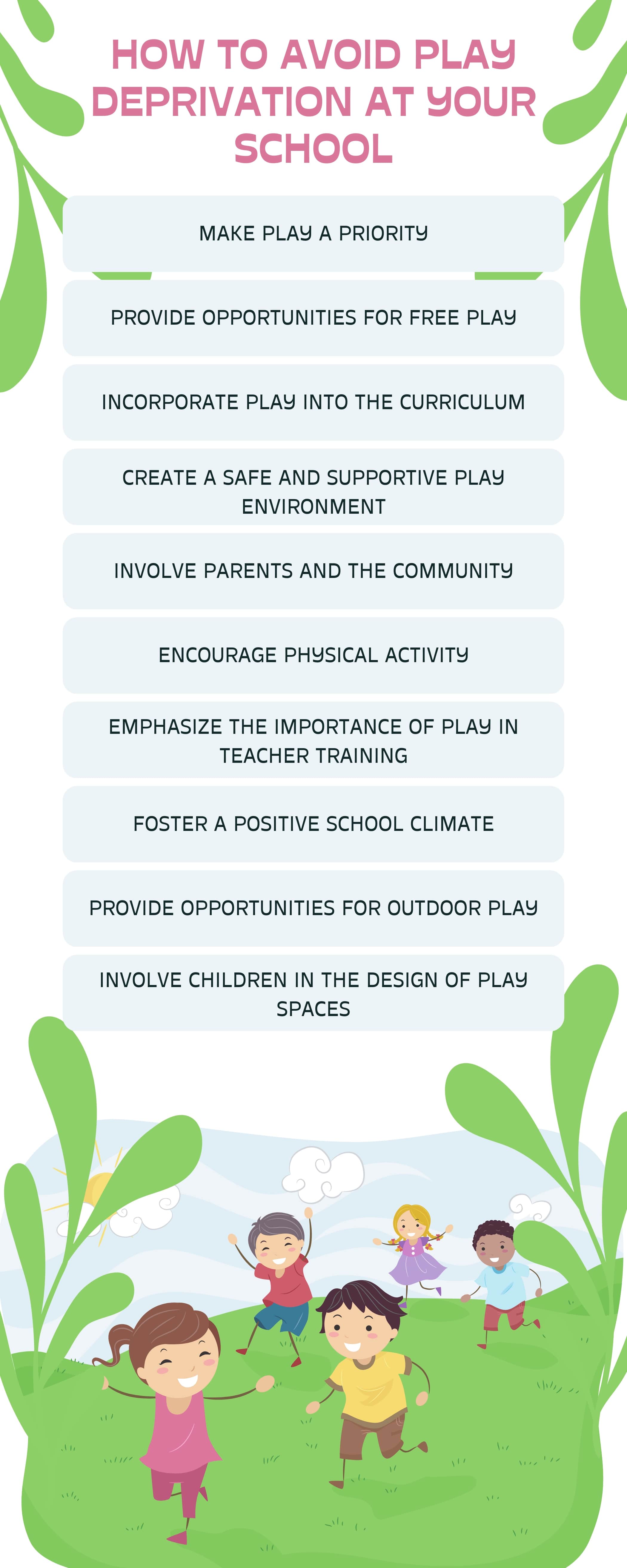
Play Deprivation: Why it Matters and What Schools Can Do About It
Author: Austin Stanfel
Play is an essential part of childhood development. Through play, children learn critical social, emotional, cognitive, and physical skills crucial for their future success. Unfortunately, many schools have cut back on playtime, leaving children with limited play opportunities. This lack of play, or play deprivation, can severely affect a child’s development. In this article, we will explore the importance of play and the consequences of play deprivation and provide some tips on how to avoid play deprivation at your school.
The Importance of Play
Play is not just a frivolous activity. It is a critical component of a child’s development. Through play, children learn how to interact with others, regulate their emotions, develop their imagination and creativity, and learn essential cognitive and physical skills. For example, playing with blocks can help children develop spatial awareness while playing with puzzles can improve problem-solving skills. Playing with other children can help children develop social skills, such as cooperation, communication, and conflict resolution.
Play is also vital for children’s mental health. Play allows children to express their emotions in a safe and supportive environment. It helps them develop coping mechanisms for dealing with stress and anxiety. Research has shown that play can be an effective therapy for children with mental health disorders like depression and anxiety.
The Consequences of Play Deprivation
When children are deprived of play, they miss out on all the benefits of play. This can have severe consequences for their development. Children who are deprived of play may have difficulty with social interaction, emotional regulation, and cognitive development. They may need help with problem-solving, creativity, and critical thinking skills. They may also be more prone to stress and anxiety.
In addition, play deprivation can have physical consequences. Children not engaging in regular physical activity may be more likely to develop obesity, diabetes, and other health problems later in life.
How to Avoid Play Deprivation at Your School
Fortunately, there are steps that schools can take to avoid play deprivation and provide children with the opportunities they need to play and learn. Here are some tips on how to avoid play deprivation at your school:
1. Make play a priority.
The first step in avoiding play deprivation is to make play a priority. Schools should recognize the importance of play and prioritize it as an essential part of the curriculum. Play should not be seen as a luxury or an extra activity but as a fundamental part of children’s development.
2. Provide opportunities for free play.
One of the best ways to promote play is to provide children with opportunities for free play. This means giving children unstructured time to play without adult direction or supervision. Free play allows children to use their imagination and creativity to explore and discover new things. It also allows them to interact with other children and develop social skills.
3. Incorporate play into the curriculum.
In addition to providing opportunities for free play, schools can also incorporate play into the curriculum. This can be done through games, simulations, and other activities that promote learning through play. For example, a math lesson can be turned into a game, or a science experiment can be turned into a simulation.
4. Create a safe and supportive play environment.
Another critical factor in promoting play is creating a safe and supportive play environment. Schools should provide children with various play equipment and materials that are safe and appropriate for their age and development. They should also provide adult supervision to ensure children play safely and are not at risk of injury.
5. Involve parents and the community.
Finally, schools can involve parents and the community in promoting play. Parents can be encouraged to provide their children with opportunities for play at home, and the community can be encouraged to support local playgrounds and other play spaces. By working together, schools, parents, and the community can create a culture that values play and recognizes its importance in children’s development.
6. Encourage physical activity
Physical activity is a vital play component and essential for children’s physical and mental health. Schools can encourage physical activity by providing opportunities for recess, physical education classes, and after-school sports programs. They can also incorporate movement breaks into the classroom, such as stretching or dance breaks.
7. Emphasize the importance of play in teacher training.
Teachers play a crucial role in promoting play and ensuring children have the opportunities to play and learn. Schools can emphasize the importance of play in teacher training programs and provide professional development opportunities for teachers to learn how to incorporate play into their lessons.
8. Foster a positive school climate.
A positive school climate is essential for promoting play and ensuring children feel safe and supported. Schools can foster a positive school climate by promoting positive behavior, providing opportunities for social-emotional learning, and creating a welcoming and inclusive environment for all students.
9. Provide opportunities for outdoor play.
Outdoor play is integral to play and provides children with opportunities for exploration and physical activity. Schools can provide opportunities for outdoor play by creating outdoor play spaces, such as playgrounds or nature areas, and by incorporating outdoor activities into the curriculum.
10. Involve children in the design of play spaces.
Finally, schools can involve children in the design of play spaces and activities. Children are experts in play and can provide valuable insights into what they need and want in play spaces. By involving children in the design process, schools can create play spaces and activities that are engaging, fun, and meaningful for children.
Conclusion
Play is an essential component of children’s development, and schools must prioritize play and provide children with the opportunities they need to play and learn. Play deprivation can have serious consequences, including academic and social-emotional deficits, behavioral issues, and decreased physical activity. Therefore, schools must take an active role in promoting play and avoiding play deprivation.
To promote play, schools can prioritize play, provide opportunities for free play, incorporate play into the curriculum, create a safe and supportive play environment, and involve parents and the community. Additionally, schools can encourage physical activity, emphasize the importance of play in teacher training, foster a positive school climate, provide opportunities for outdoor play, and involve children in the design of play spaces.
Schools can help children explore, imagine, create, and learn by promoting play in a supportive and engaging environment. Playful learning experiences can improve academic outcomes, promote social-emotional development, and encourage physical activity. Furthermore, play can foster creativity, critical thinking, problem-solving skills, and collaboration, which are essential for success in school and beyond.
In conclusion, play is not a luxury or an extra activity but a fundamental part of children’s development. As educators, parents, and community members, we ensure that our schools prioritize play and provide children with the opportunities they need to thrive. By incorporating the tips and strategies outlined in this article, schools can avoid play deprivation, create a culture that values play, and recognize its importance in children’s development.


